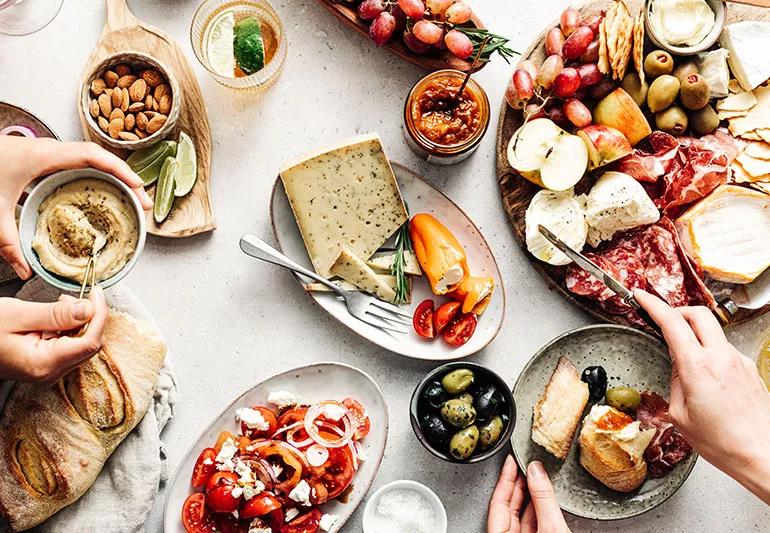Your food choices can have a profound impact on how long you’ll live

The battle against heart disease, stroke and Type 2 diabetes — three of the world’s leading causes of death — may be won or lost on your grocery list.
Advertisement
Cleveland Clinic is a non-profit academic medical center. Advertising on our site helps support our mission. We do not endorse non-Cleveland Clinic products or services. Policy
Unhealthy eating habits stand out as a lifestyle factor that increases the risk of death associated with these chronic diseases, researchers say. Numerous studies draw a clear line between what’s on your plate and mortality.
For instance:
Each study illustrates the profound impact that food choices can have on your health, says registered dietitian Kate Patton, MEd, RD, CCSD, LD. (Patton was not involved in the cited research.)
“A way of looking at it is thinking about food as medicine,” explains Patton. “The right food can really improve your health and decrease your risk of developing these chronic diseases.”
Advertisement
The studies identify some common culprits in poor diets that have long been associated with influencing your heart health and metabolism. Excessive sodium/salt intake ranked among the top concerns.
While sodium is an essential nutrient for your body, too much of it can lead to high blood pressure (hypertension) and damaged arteries that strain your heart, Patton notes. And hypertension is a stepping stone to heart disease and potentially a heart attack or stroke.
The average American consumes about 3,400 mg of sodium per day, according to the U.S. Food and Drug Administration. The federal Dietary Guidelines for Americans 2020-2025 recommends limiting sodium intake to less than 2,300 mg per day.
But it’s not just a matter of putting down the salt shaker. Sugary beverages and processed food – particularly meat – also earned warning flags in the studies, as did foods high in saturated fats.
The road to healthier eating starts in the produce aisle with fruits and vegetables. The average diet for Americans falls short of meeting recommended levels, according to statistics from the U.S. Department of Agriculture.
Healthier diets, like the rightly acclaimed Mediterranean diet, also feature more whole grains, nuts and seafood such as salmon and tuna that are rich in omega-3 fatty acids, according to the various studies.
“These studies and others like them serve as a call to take a closer look at your diet,” says Patton.
It could be a life-saving action.
Advertisement

Sign up for our Health Essentials emails for expert guidance on nutrition, fitness, sleep, skin care and more.
Learn more about our editorial process.
Advertisement

This color additive, found in many pre-packaged foods, may affect people with ADHD or allergies

With a focus on internal cues for hunger and fullness, this eating style may revolutionize your relationship with food

Review the ingredients, watch for sugar and fat, and choose one with the right amount of protein for your needs

Getting the hang of portions can help you better understand how much to put on your plate

A typical recommended balanced diet is half fruits and veggies, a quarter protein and a quarter grains

Foods high in protein, fiber and water can help keep hunger at bay

This quirky food trend is harmless, as long as you’re getting enough protein, fiber and healthy fats

With a little planning, you can fill your belly and boost your energy

Even small moments of time outdoors can help reduce stress, boost mood and restore a sense of calm

A correct prescription helps your eyes see clearly — but as natural changes occur, you may need stronger or different eyeglasses

Both are medical emergencies, but they are very distinct events with different causes